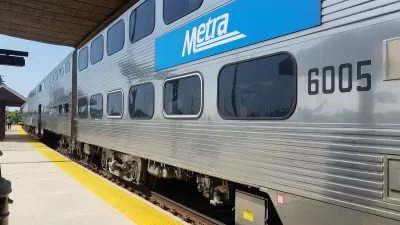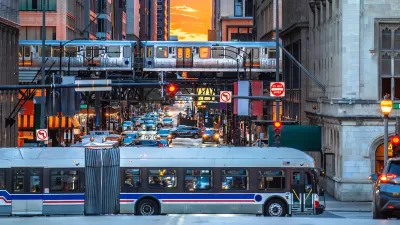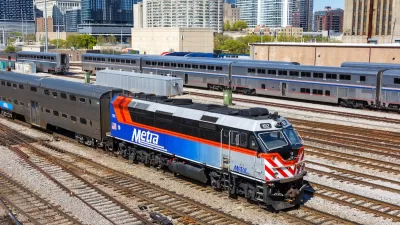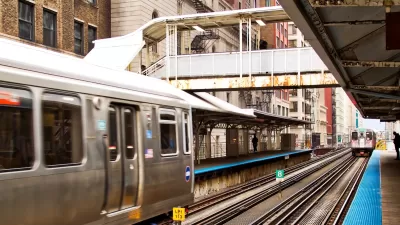Metra's significant drop in ridership has forced the agency to adapt to a new transit landscape and plan for equitable fare offerings and service changes.

Among Chicago-area transit agencies affected by the coronavirus pandemic, Metra has been hit the hardest, says regional transit advocate Scott Presslak. The agency, historically catering to white-collar Loop commuters, has experienced a 90% decrease in ridership and was forced to dramatically reduce service in the last 6 months.
"With the Loop a virtual ghost town, even workers who may have to go into the office a few times a week can find faster commutes on the expressways and cheap parking rates downtown," writes Presslak.
Presslak says Metra needs to reconsider it's current "wait-and-see approach" to adapting to the ridership decline and "address the growing racial and social inequities in our regional transit system."
Star:Line Chicago and Active Trans' 2019 Fair Fares Chicagoland report recommended several changes to promote a more equitable Metra fare offerings. Presslak notes that at Metra’s September board meeting, the agency considered updating line-by-line service restoration consistent with the report's recommendations.
Additionally, Romayne C. Brown will take over for Norm Carlson on Metra's board of directors. Brown, soon to be Metra's first female African-American chairperson "has already prioritized implementation of the South Cook Fair Transit pilot. This crucial project aims to lower fares for Metra Electric and Rock Island commuters on the South Side of Chicago and in the south suburbs while also promoting convenient transfers and integration with Pace and CTA," Presslak reports.
Presslak expresses for Metra's plans for improvement and urges the agency to move toward implementation.
FULL STORY: Metra must get past serving just white-collar suburban riders

Maui's Vacation Rental Debate Turns Ugly
Verbal attacks, misinformation campaigns and fistfights plague a high-stakes debate to convert thousands of vacation rentals into long-term housing.

Planetizen Federal Action Tracker
A weekly monitor of how Trump’s orders and actions are impacting planners and planning in America.

San Francisco Suspends Traffic Calming Amidst Record Deaths
Citing “a challenging fiscal landscape,” the city will cease the program on the heels of 42 traffic deaths, including 24 pedestrians.

Defunct Pittsburgh Power Plant to Become Residential Tower
A decommissioned steam heat plant will be redeveloped into almost 100 affordable housing units.

Trump Prompts Restructuring of Transportation Research Board in “Unprecedented Overreach”
The TRB has eliminated more than half of its committees including those focused on climate, equity, and cities.

Amtrak Rolls Out New Orleans to Alabama “Mardi Gras” Train
The new service will operate morning and evening departures between Mobile and New Orleans.
Urban Design for Planners 1: Software Tools
This six-course series explores essential urban design concepts using open source software and equips planners with the tools they need to participate fully in the urban design process.
Planning for Universal Design
Learn the tools for implementing Universal Design in planning regulations.
Heyer Gruel & Associates PA
JM Goldson LLC
Custer County Colorado
City of Camden Redevelopment Agency
City of Astoria
Transportation Research & Education Center (TREC) at Portland State University
Jefferson Parish Government
Camden Redevelopment Agency
City of Claremont





























